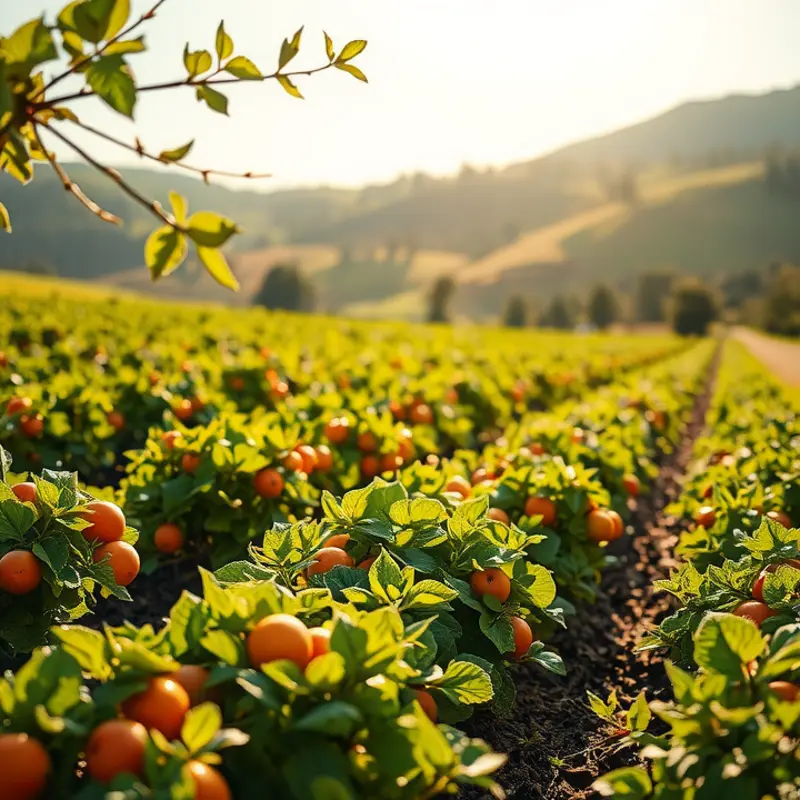Embracing planet-positive meal planning empowers individuals to make food choices that promote environmental sustainability. Adopting eco-friendly practices in our daily meals can significantly reduce our carbon footprint while nourishing our bodies. This approach not only supports personal health but also contributes to the well-being of our planet. By focusing on seasonal ingredients, minimizing waste, and selecting sustainable options, we can transform our kitchens into hubs for eco-conscious culinary creativity.
Understanding Eco-Friendly Ingredients

Choosing eco-friendly ingredients is critical for a sustainable diet. These choices reduce environmental impact and support a healthier planet. Certain ingredients have a lower carbon footprint, require fewer resources, and support biodiversity.
When selecting grains, quinoa and amaranth emerge as strong contenders. Unlike rice, these ancient grains grow in diverse climates and require minimal water. They provide high nutritional value and are often cultivated using practices that enhance soil health.
For protein, plant-based alternatives are ideal. Legumes such as lentils and chickpeas are highly efficient. They enrich the soil with nitrogen and use significantly less water than animal-based proteins. Moreover, diversify your meals with hemp seeds and chia seeds, which are nutrient powerhouses that require less resource input.
In the realm of vegetables, root crops like carrots and beets hold sustainable potential. They tend to need fewer agricultural inputs. Additionally, kelp and other sea vegetables are incredibly sustainable as they grow rapidly without fertilizers. Expanding your palate to include seaweed can considerably decrease your diet’s carbon footprint.
Local and seasonal fruits should top your list. Prioritizing these reduces transportation emissions and supports local economies. Berries, apples, and pears often grow with minimal interventions when sourced seasonally. Consider integrating more ugly produce—these imperfect fruits and vegetables are just as nutritious and help reduce food waste.
Embrace sources of fat like avocado oil and olive oil. While avocados have a fairly high water footprint, their oil lasts longer, thereby reducing waste. Olive oil production is more water-efficient than the cultivation of some animal fats.
Swap traditional dairy for oat milk, which uses less water in comparison to almonds. When choosing eco-friendly milk, contemplate shelf-stable options to reduce spoilage-related waste.
Finally, spices and herbs offer a burst of flavor with minimal environmental impact. Turmeric, ginger, and coriander not only enrich culinary experiences but frequently grow as part of agroforestry practices. Cultivated alongside other crops, they play a crucial role in maintaining agricultural biodiversity.
Consider learning about easy sauce simmering with these herbs to elevate your dishes sustainably. For tips, visit this guide.
Emphasizing such eco-friendly ingredients promotes a balanced consumption that aligns with nature’s rhythms. By making mindful choices, you become a cog in the larger machinery striving for a greener Earth.
Mastering Sustainable Meal Planning

Designing a meal plan that champions sustainability begins with a mindful approach to sourcing ingredients. Understanding seasonality is key. By choosing seasonal produce, you not only support local farmers but reduce the carbon footprint associated with long-distance transportation. As an example, in the fall, squash, apples, and root vegetables are abundant and offer a great base for nutritious meals.
Meal planning with an emphasis on sustainability involves a conscious effort in waste reduction. Begin by inventorying your pantry and refrigerator. This helps prevent over-purchasing and encourages the use of ingredients before they spoil. Consider creating a ‘leftovers night’ in your weekly plan, creatively transforming remnants of past meals into new dishes, thereby minimizing food waste. For tips on storing sauces safely and reducing food waste through smarter storage, check out this guide on eco-smart kitchen storage.
Transitioning towards plant-based meals is another critical aspect of sustainable meal planning. Plants generally require fewer resources to produce than animal products. Start by introducing one plant-based meal per day, incorporating a variety of colorful vegetables, grains, and legumes. Plant-based proteins, such as lentils, chickpeas, and tofu, can be just as satisfying as their meat counterparts when prepared with creativity.
Embrace the practice of batch cooking and freezing meals. This allows for efficient use of time and energy resources. On the weekend, prepare double batches of freezable soups or casseroles. Not only does this save time on busy weekdays, but it also reduces reliance on energy-consuming cooking equipment during peak times.
Lastly, embrace culinary diversity by drawing inspiration from global cuisines. Many cultures have mastered the art of creating delicious, plant-centric dishes. Exploring these cuisines broadens your palate while supporting a planet-friendly diet.
Sustainable meal planning doesn’t demand a complete dietary overhaul overnight. It’s about making small, impactful changes that cumulatively lead to significant environmental benefits. By integrating these practices into your routine, you contribute positively towards a healthier planet, one meal at a time.
Final words
Selecting planet-positive meal options can significantly impact both personal health and the environment. By understanding the importance of eco-friendly ingredients and mastering sustainable meal planning, we can consciously contribute to the well-being of our planet. Every small action counts; whether it’s choosing local produce, opting for seasonal foods, or reducing kitchen waste, these habits add up to meaningful change. Let your culinary choices reflect your commitment to sustainability, inspiring those around you to join in making eco-conscious decisions. Every meal can be a step towards a healthier planet.








